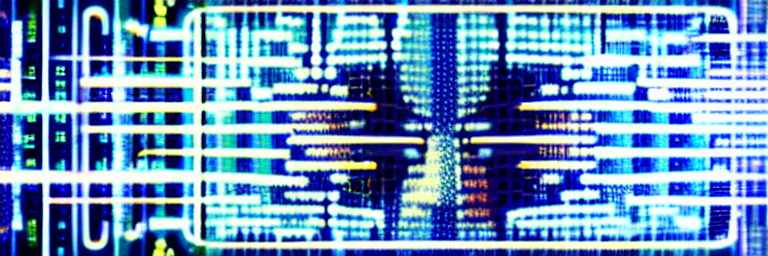Multi-agent systems (MAS) have the potential to revolutionize various aspects of business by leveraging the power of AI and autonomous decision-making.
Defining Multi-Agent Systems (MAS)
A multi-agent system (MAS) is a computational framework consisting of multiple interacting agents or autonomous entities, each with its own goals, knowledge, and decision-making capabilities. These agents can be software programs, robots, or any other smart entities that can perceive their environment, reason, learn, communicate, and take actions to achieve their objectives. Multi-agent systems are used to model complex systems where the interactions between individual components play a significant role in the overall behavior of the system.
Multi-agent systems have applications in a wide variety of domains, including:
1. Distributed computing: Multi-agent systems can efficiently manage distributed resources, such as computing power, storage, and network bandwidth, by enabling autonomous agents to negotiate, cooperate, and allocate resources based on their individual needs and preferences.
2. Robotics: In swarm robotics or multi-robot systems, multiple robots work together to achieve a common goal, such as search and rescue, exploration, or transportation, by coordinating their actions and sharing information.
3. Artificial intelligence: Multi-agent systems provide a natural framework for modeling and implementing intelligent agents that interact and compete with each other in complex environments, such as trading, negotiation, or game playing.
4. Simulation and modeling: Multi-agent systems can be used to simulate and model complex real-world phenomena, such as social, economic, or ecological systems, by capturing the interactions between individual entities and their collective behavior.
5. Traffic and transportation systems: Multi-agent systems can help optimize traffic flow, reduce congestion, and improve transportation efficiency by enabling intelligent traffic management, route planning, and vehicle coordination.
Key Features
Some key features of multi-agent systems include:
– Decentralization: Multi-agent systems are typically decentralized, with each agent making decisions independently based on its own knowledge and goals.
– Communication: Agents can communicate with each other to share information, negotiate, and coordinate their actions.
– Adaptability: Multi-agent systems can adapt to changes in their environment or the goals of individual agents, allowing them to respond effectively to new situations.
– Scalability: Multi-agent systems can scale to large numbers of agents, making them suitable for modeling and managing complex systems.
– Robustness: The distributed nature of multi-agent systems makes them more robust to failures, as the system can continue to function even if some agents fail or are removed from the system.
The Possibilities
Multi-agent systems (MAS) have the potential to revolutionize various aspects of business by leveraging the power of AI and autonomous decision-making. Here are some ways in which multi-agent systems can transform business operations:
1. Supply chain management: Multi-agent systems can help optimize supply chain processes by enabling autonomous agents to represent different components of the supply chain, such as suppliers, manufacturers, distributors, and retailers. These agents can interact, negotiate, and coordinate with each other to optimize inventory levels, reduce lead times, minimize costs, and improve overall efficiency.
2. Business process automation: Multi-agent systems can automate complex business processes by delegating tasks to specialized agents. These agents can independently execute tasks, communicate with each other, and adapt to changing business requirements, leading to more efficient and flexible process automation.
3. Collaborative decision-making: In organizations with multiple stakeholders, multi-agent systems can facilitate collaborative decision-making by representing the interests and preferences of each stakeholder. These agents can negotiate, reach consensus, and make joint decisions, reducing conflicts and streamlining the decision-making process.
4. Customer relationship management: Multi-agent systems can enhance customer relationship management by using AI agents to interact with customers, personalize communication, and provide tailored recommendations based on individual preferences and behaviors. This can lead to improved customer satisfaction, increased loyalty, and higher customer retention rates.
5. Intelligent resource allocation: Multi-agent systems can be used to optimize the allocation of resources, such as personnel, equipment, or financial assets, by enabling agents to represent these resources and negotiate their usage based on their availability, constraints, and priorities.
6. Distributed problem solving: Multi-agent systems can tackle complex problems by breaking them into smaller sub-problems, which are then solved by specialized agents. This distributed approach allows for parallel processing and more efficient problem-solving, particularly in large-scale and dynamic environments.
7. Market simulations and predictions: Multi-agent systems can be used to simulate and predict market behavior, such as stock prices, trading volumes, or consumer demand. By modeling market participants as agents and capturing their interactions, MAS can generate valuable insights to inform business strategies and investment decisions.
8. Smart cities and infrastructure: Multi-agent systems can be applied to manage and optimize urban infrastructure, such as transportation, energy, and waste management systems. Autonomous agents can coordinate the operation of these systems, adapt to changing conditions, and optimize resource usage, leading to more sustainable and efficient cities.
By integrating multi-agent systems with AI technologies, businesses can create more intelligent, adaptive, and efficient solutions to various challenges. This can lead to improved operational efficiency, better decision-making, and increased competitiveness in the rapidly evolving business landscape.

